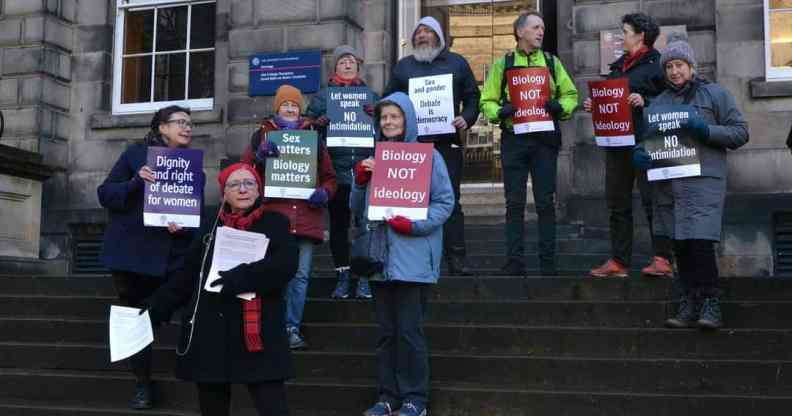Scottish judge rules trans women with Gender Recognition Certificate can be legally defined as women

Anti-trans pressure group For Women Scotland were “hugely disappointed” with the judge’s ruling. (Instagram/For Women Scotland)
In a win for trans people, a Scottish judge has ruled transgender women with a Gender Recognition Certificate can be legally defined as women when seeking a place on public boards.
Anti-trans group For Women Scotland took the Scottish government to court last year in relation to the definition of ‘women’ in the Gender Representation on Public Boards (Scotland) Act 2018.
The legislation aims to ensure public boards have a 50 per cent women gender balance in non-executive member positions.
For Scotland Women argued the legislation did not match the Equality Act 2010’s separate definitions of women and transgender women, as reported by The National.
The group also expressed fears about wider implications for single-sex spaces.
It was For Scotland Women’s second judicial review of the legislation.
In the most recent judgement, which was released on Tuesday (13 December), Lady Haldane stated the Equality Act 2010 protects a person’s rights based on their sex but the definition of “sex” is not entirely restricted to a person’s biological birth sex.
She said the ability of Gender Recognition Certificates to change someone’s legal sex “does not offend against, or give rise to any conflict with, legislation where it is clear that ‘sex’ means biological sex”.
The group originally lost the first judicial review but successfully appealed it, which led to the Scottish Government revising the act.
It now states: “Where a full gender recognition certificate has been issued to a person that their acquired gender is female, the person’s sex is that of a woman, and where a full gender recognition certificate has been issued to a person that their acquired gender is male, the person’s sex becomes that of a man.”
This change is what led to the second review.
For Women Scotland said it was “hugely disappointed” and did not rule out pursuing more legal action.
The group said it was “obviously still analysing the decision” but that “at first reading, this seems disastrous for women who are seemingly now no longer recognised in law as a sex class, with distinct requirements of our own”.
It comes as the Scottish parliament is set to vote on gender law reforms next week.
The changes would shorten the time it takes for people wanting to obtain gender recognition certificates, which would allow them to change the gender on their birth certificate.
It would also mean medical diagnoses are not needed, and the legal age to change gender would drop from 18 to 16.

